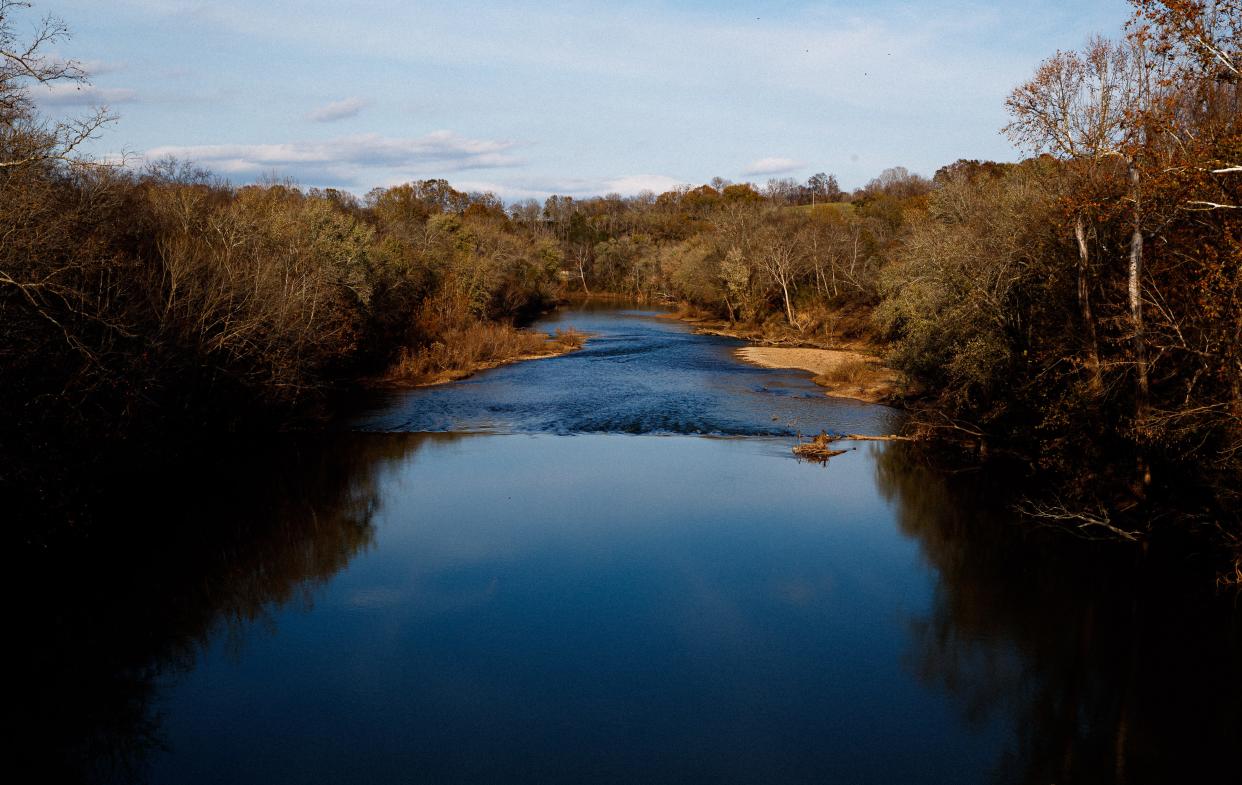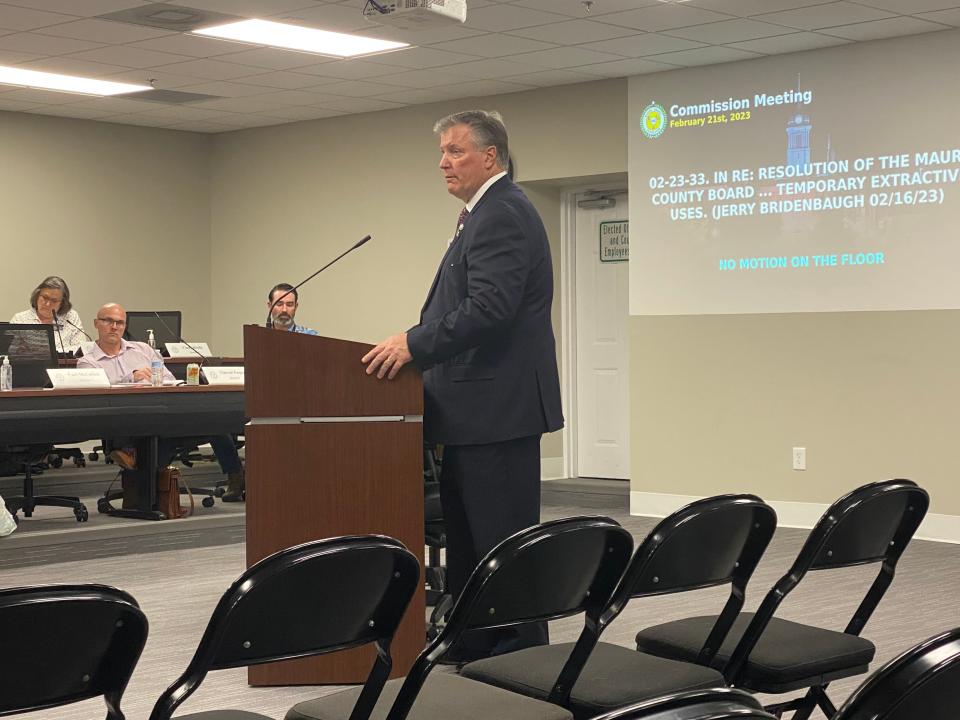Elected leaders rally to protect Duck River through proposed state bill

The Maury County Commission urged state legislators to provide more guardrails of protection to the Duck River, Columbia’s main source of drinking water, Tuesday, by unanimously passing a resolution in support of a proposed bill sponsored by Rep. Scott Cepicky, R-Culleoka, and Sen. Joey Hensley, R-Hohenwald.
House Bill 0447 would expand the river's “scenic status” parameters, adding additional layers of protection to the waterway, such as deterring close by development.
The bill is scheduled to be heard by the House Agriculture & Natural Resources Subcommittee on Feb. 28.
According to the Tennessee Scenic Rivers Act of 1968, current scenic river protections span from Iron Bridge Road to the Marshall County line. The new bill would further extend the boundaries of protection of the Duck River from Industrial Park Road in Columbia to the Hickman County line.
Jackson Law approved last fall
The county commission voted last fall to adopt the state Jackson Law, which limits development within close proximity of water sources, such as the Duck River.
The county commission's move to adopt the Jackson Law would restrict the parameters of certain development, including a proposed industrial landfill on the former Monsanto property that has drawn much public scrutiny.
Last fall, Baton Rouge-based Trinity Business Group applied for a Tennessee Department of Environment & Conservation permit that would establish a tire processing facility at the former Monsanto chemical plant site in Columbia. The proposal sparked much concern from residents and elected leaders, which led to the proposed state legislation that would add further protections to the Duck River, one of the most biodiverse rivers in the world.

Leaders worry that the proposed tire processing facility, or landfill, could potentially produce toxic chemicals that could result in run off into the waterway. In addition, the former Monsanto Superfund site contains volatile and combustible pollutants like phosphate, buried underground, site studies show.
Past concerns have centered around polluted leachate seeping to the soil surface that could contaminate ground waters in the Duck River.
Residents speak in support of bill
Residents showed up at the commission meeting Tuesday night, wearing green, to show their support of the eco-friendly bill.
Mary Susan Kennedy, longtime Columbia resident and mother of local century farmer Sam Kennedy read a statement from her son during public comments imploring county leaders to protect the Duck River.
Kennedy’s statement emphasized his desire to see the protections move forward since he lives and works alongside the river, which runs through his property, a farm that has been in the Kennedy-Delk family for over 200 years.
“The health of my family and farm depend on clean water,” Kennedy read from her son’s statement.
Additionally, former Maury County science teacher, Stephanie Sparks-Newland, who has been actively advocating for protections for Duck River to keep the waterway healthy for the next generation to ensure educational and recreation opportunities.
“We’ll be screaming for joy across the county if we can get the protections,” Sparks-Newland said.
Commissioner Aaron Miller, who represents the 7th District where much of the Monsanto property lies, stated his support of the additional protections.
“We all enjoy or take something from the Duck River in the county,” Miller said. “We have an obligation to do what we can to protect it.”
Legislators urge commissioners to show up
Cepicky, who was present at the commission meeting, urged commissioners to make an in-person show of support at the 113th Tennessee General Assembly on Feb. 28.
Cepicky said the bill has a chance of failing if commissioners do not show adequate support.
Concerned citizens are also penning their hopes on TDEC rejecting Trinity Business Group's permit application for the landfill facilities at the old Monsanto plant, which is within a mile of the river.
In 2010, the Duck River was given the designation of “most biodiverse river in North America.”
While some species have already succumbed to extinction, an additional goal is to maintain the river’s wealth of over 500 types of species, some exclusive to the Duck River.
Kerri Bartlett contributed to this story.
This article originally appeared on The Daily Herald: Elected leaders rally to protect Duck River through proposed state bill

